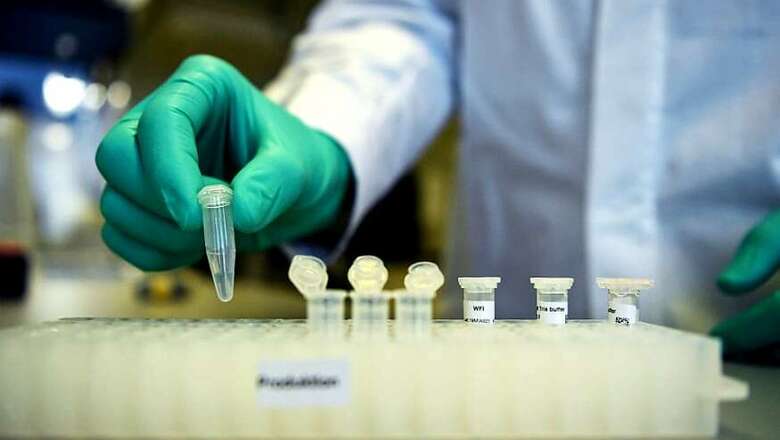
views
In a bid to treat coronavirus affected patients in all possible ways, West Bengal government has decided to go for the Randomised Control Trial (RCT) method using convalescent plasma collected from people who have recovered from Covid-19.
The idea behind opting for the RCT is to prove and ascertain that ‘plasma therapy’ is a good option for all Covid-19 patients rather than going for the direct therapy in few acute cases.
The Infectious Diseases and Beliaghata General Hospital in Kolkata has taken the lead for RCT and already applied for its approval from Drug Controller General of India (DGCI).
“We are not directly jumping into ‘plasma therapy’ to treat Covid-19 patients. We first want to be sure that it is actually a viable option to treat Covid-19 patients. It may be possible that in one case this therapy works and in other case it may not work. There is no scientific proof that it will work in all the Covid-19 patients,” Dipyaman Ganguly, an immunologist and Kolkata-based cell biologist, told News18.
“Therefore, to make it sure that this is the best possible option before us to treat Covid-19 patients – we have decided to go for RCT before jumping directly in to plasma therapy. After RCT, we will have a statistic to prove that this therapy is viable,” he said.
On being asked about possible vaccination or medicine to fight the virus, he said, “We cannot afford to go for a completely new drug to treat Covid-19 patients because it will take two to three years. We cannot afford to wait for years for a new drug or vaccine. The best way is to experiment and look for its cure from the existing drugs which are approved by the nodal agencies.”
Dipyaman Ganguly is recipient of National Bioscience Award for Career Development, which is one of the highest Indian science awards for his contributions to biosciences in 2017-18. He is currently a Principal Scientist and Swarnajayanthi Fellow at the CSIR Indian Institute of Chemical Biology (IICB).
Despite showing good results in some critical patients in Delhi and other parts of India, convalescent plasma has not yet been proved to be safe and effective way to treat the coronavirus infected patients.
When contacted Dr Yogiraj Roy, who is directly involved in RCT, said, “There are instances where doctors are exploring the use of convalescent plasma to treat Covid-19 patients.”
Explaining in detail about the convalescent plasma theory, he said, “Convalescent plasma collected from individual’s blood who has recovered from Covid-19. After that the ingestion of plasma is done on Covid-19 patients. In this case, the plasma must be collected after 28 days when the patient is completely healthy and free from coronavirus. Plasma therapy is a passive immunisation and the process is known as ‘Plasmapheresis’ (in which the liquid part of the blood, or plasma, is separated from the blood cells).”
“The convalescent plasma collected from recovered Covid-19 patient contains a good amount of anti-bodies which was formed while combating the virus. When the same anti-body was collected after 28 days from the recovered person and ingested in a serious Covid-19 patient, then this helps the patient in fighting the virus. This helps the patient in buying some time until their immune system starts producing its own antibodies. However, this may not work in all cases. Therefore, we want to go for RCT to have some data which will prove that this is actually an effective way to treat Covid-19 patients,” he said.
Roy further said that they are waiting for the approval from DGCI and expecting nearly 40 kits from them required for ‘Plasmapheresis’ and RCT.
The state health department in consultation with immunologists and expert doctors will chalk out a strategy on how to go with this method.
Another microbiologist, who is associated with Institute of Child Health, Kolkata, Dr Suman Poddar, said, “In RCT, the scientists will focus on ‘humoral immunity’ (it involves substances found in the humors or body fluids) because it contains anti-body called ‘IgG’, which is long lasting and believed to be good combat ability to fight novel coronavirus. This antibody could be bio-preserved for a year and can be used as per requirement.”




















Comments
0 comment